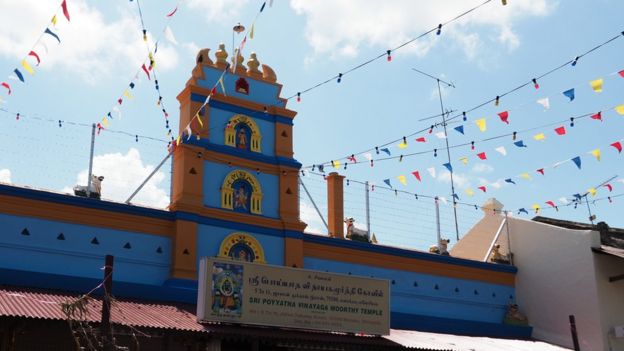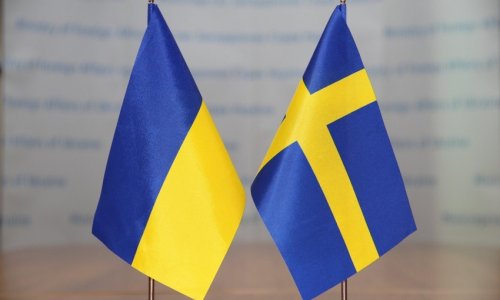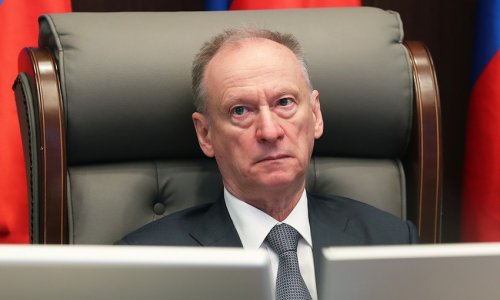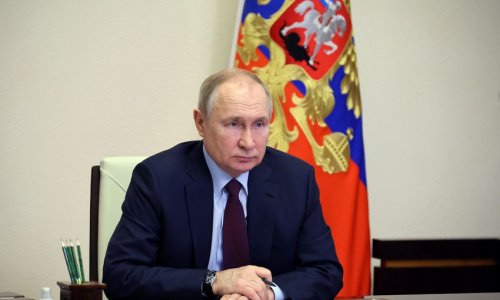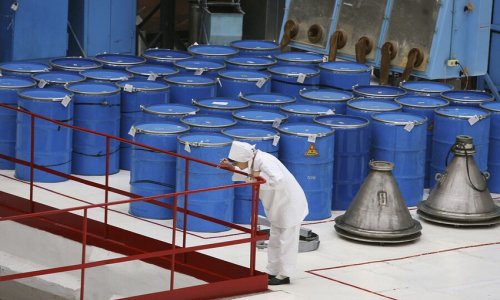At the Cheng Hoon Teng Temple in the historic Malaysian city of Malacca, worshipers light joss sticks and bow before gilded alters. The smell of incense and the sound of chanting monks fill the air.
The temple was established in the early 18th Century for Chinese settlers who came to work in what was once one of East Asia's busiest ports.
But the Chinese were not Malacca's only overseas inhabitants.
Immigrants also came from South Asia, and on the same street as the Chinese temple there is another place of worship: for Hindus.
Between these two temples stands a mosque, built for the city's Malay population, who are mostly Muslim.
These three different places of worship - on a thoroughfare known as Harmony Street - reflect Malaysia's ethnic mix, and the good relations that has mostly existed between them.
'No disturbances'
But many believe that peace is in danger of coming apart.
Several ethnically charged protests and riots have revealed tension between the Malay, Chinese and Indian communities.
A campaign to bring Malaysians together, launched by Prime Minister Najib Razak when he first came into office, has petered out. And some believe politicians are stoking ethnic tension.
Little of this is on show in Malacca though.
Inside the courtyard of the elegant, whitewashed Kampung Kling Mosque in Harmony Street all is peaceful. Water spurts gently from a fountain built next to a tiny graveyard and a mango tree.
Inside the prayer room, ceiling fans whirl, offering the faithful a little relief from the heat of the day.
One of the imams at the mosque said this part of Malacca was usually tranquil. "Along this street everyone practises their own religion," he said.
"Even though the majority of people in Malacca are Muslims, there are still Chinese and Indian temples, and there are no disturbances between each other."
The imam is Malay, an ethnic group that makes up about 60% of the population in Malaysia, and one that has a number of advantages.
Following deadly race riots in 1969, during which nearly 200 died, the government gave Malays privileges in sectors such as education, business and the civil service.
They were intended to counter the dominance of the other two main ethnic groups, particularly the Chinese, who account for a quarter of the population. About 7% of Malaysians have a South Asian heritage.
Preserve status quo
These affirmative action policies were supposed to be temporary, but many remain in place today. Publicly listed companies, for example, must still ensure that 30% of their shares are owned by Malays.
When Mr Najib, a Malay who leads a party for Malays, came to power in 2009 he promised to end these policies, but that has not happened.
He also launched a campaign called 1Malaysia, to encourage people to identify themselves as Malaysians rather than from the ethnic group they come from.
Dr Oh Ei Sun, once the prime minister's political secretary, said that campaign soon hit problems.
"Mr Najib immediately ran into resistance, not least from his own party members who wanted to preserve the economic and political status quo," he said.
Some ordinary Malays also appear worried that the system they benefit from might change.
Last September, the police had to stop a group of angry Malays marching through the centre of Kuala Lumpur's Chinatown, in a show of force that appeared to be about reasserting their rights.
Politically, it is also now more difficult for the prime minister to end affirmative action.
His United Malays National Organisation won the 2013 general election, but saw its support dwindle.
Some analysts believe Mr Najib has let the 1Malaysia campaign drift because he has to appeal to his core supporters to win future elections.
"The carrot that the prime minister has to entice the poor Malay electorate, who see themselves are deeply marginalised, is affirmative action," said Terence Gomez, of the University of Malaya in Kuala Lumpur.
'Race not important'
But perhaps Malaysians are coming together anyway.
Mr Gomez made it clear that he does not like labelling people according to race. He believes many others share this opinion.
"We've reached a point in Malaysia where people don't like to be asked whether they are Malay, Chinese or Indian," he said.
And Mr Gomez thinks the country's leaders, including the prime minister, care less about race than they make out. He pointed out that many of Mr Najib's trusted advisers are from different ethnic groups.
"I don't think they look at each other and say he's Malay, Chinese or Indian. They are looking to how they can serve each other's interests," he explained.
On the university campus many students seemed to share the academic's viewpoint.
"I feel that in Malaysia unity is very important," one woman said. "Although we are from different educational backgrounds, cultures and traditions, it's better to identify ourselves as Malaysian."
In some ways, Malaysia's different ethnic groups exist in different worlds. Many live apart. Most go to schools that match their ethnicity.
But Harmony Street shows they have lived together harmoniously. If politicians do not inflame ethnic tensions, that could be the future too.
(BBC)
www.ann.az
Follow us !

